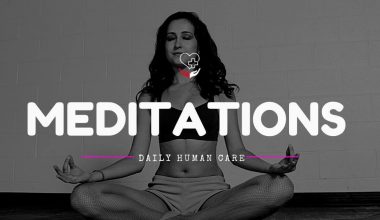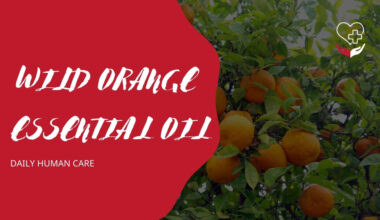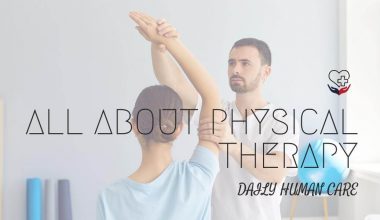This post by Daily Human Care is all about the effective ways to remove cystic acne. Let’s start.
Table of Contents
Effective Ways To Remove Cystic Acne
Cystic acne is a kind of inflammatory acne, causing painful, pus-filled pimples to form deep under the skin. It develops when sebum or dead cells of the skin clog skin pores. Bacteria enter the pores as a result of the cystic acne, causing swelling or inflammation.
Cystic acne is more prone to leave scars and are frequently painful. It’s a common misperception that cystic acne and nodular acne are similar. Both conditions lead to painful, deep pimples under the skin that can leave scars, but cystic acne causes pimples filled with pus, whereas nodular acne is more rigid and solid and does not contain fluid in pimples. The Effective Ways To Remove Cystic Acne
The Effective Ways To Remove Cystic Acne
Acne can appear on several parts of your body, including your chest, shoulders, arms, and forehead, although it is most noticeable on your cheeks, chin, and forehead. Acne is among the most common skin issues in Pakistan; the cystic acne affects a lesser proportion of the population and is treated by the skin specialist.
What are the causes of cystic acne?
People can experience breakouts that last for years. Cystic acne is a common disorder that affects many people from puberty or into their early 20s, although it can sometimes return earlier or later in life. To treat cystic acne effectively, you must understand its reasons.
-
Hormonal Changes: The hormonal changes that occur during puberty are the primary cause of cystic acne. Sebum production and skin cell growth accelerate throughout puberty due to the sharp rise in levels of androgen hormones in the blood. Menstrual cycle, pregnancy, birth control, and stress-related hormonal changes also play a role in the cystic acne development.
-
Age: According to estimates, 80% of persons between 11 and 30 might experience acne at some stage. Young adults and teens are most frequently affected by acne. Teenagers are prone to cystic acne due to the high rate of hormonal changes in them.
-
Oily Skin: Everyone can get acne, but those who have oily skin are more prone to get cystic acne. It could result from bacteria, sebum, and dry or dead skin cells clogged in your pores.
-
Genetics: The risk of getting acne and the severity of it depend on a person’s genetic makeup. If either of your parents had severe acne as teenagers or adults, your risk of getting outbreaks may be higher.
5. Some Skin Products: Greasy cleansers, lotions, and cosmetics contribute to cystic acne development.
What are the symptoms of cystic acne?
Cystic acne frequently leaves permanent scars because of its severe and profound nature. Cystic acne symptoms might vary depending on how severe your condition is:
- Whiteheads
- Blackheads
- Red, painful pimples
- Pus-filled pimples
- Under-the-skin bumps that are big, hard, and painful
- Pus-filled pimples under the skin (cystic lesions)
What is the Treatment of Cystic acne?
Although there are effective acne treatments, they can sometimes persist. When a bump or pimple starts to fade, another appears out of nowhere. Acne can result in emotional distress and skin scarring based on its severity. Your chances of developing such issues decrease with early treatment. Medication for acne reduces oil production, inflammation, and infection by bacteria. Typically, over-the-counter drugs for mild acne don’t treat cystic acne. Your doctor might recommend one or more of the following therapies:
- Oral antibiotics reduce bacterial growth and inflammation.
- Long-term treatment for acne in women can be achieved with hormonal management provided by birth control pills, which lowers sebum production. Oral estrogen and progesterone medication may be taken for six months or longer when prescribed.
- Benzoyl peroxide is used to reduce inflammation and kill skin microorganisms. Any degree of acne can be treated with benzoyl peroxide.
- Retinoid is a vitamin A form that comes in ointment, moisturizer, or gel. It can widen your pores and facilitate the action of medicines.
- Isotretinoin tackles all factors that contribute to acne. Although isotretinoin is a highly effective medicine, it has severe adverse effects and is harmful to unborn children. If a woman is taking this medication, she shouldn’t become pregnant.
- Spironolactone to drastically reduce extra oil. The adverse effects, like breast growth, restrict doctors from prescribing it to men.
How to prevent cystic acne?
The following actions can be helpful if you have moderate acne or want to lower the likelihood that acne will appear on your skin:
- Regularly shampoo your hair
- Gently wash your skin after vigorous exercise, before going to bed, or early in the morning.
- Try to avoid touching the skin with your hands.
- Be careful when shaving, and use soapy water to soften the beard·
- Avoid excessive sun exposure as it might harm your skin’s health and appearance.
- Find the shaving technique that is most comfortable for you, and only use it when required.
Conclusion:
Sometimes, your skin can get clear with antibiotics or prescription-strength topical (skin) treatments. You all need to consult a top dermatologist in cystic acne situations for treatment. The dermatologist will examine and treat your cystic acne according to the severity of the condition.
FAQs:
1. Why does cystic acne have pus?
Acne usually starts when the pores of your skin are clogged with dead skin cells. Bacteria can also become trapped, causing the area to become swollen. Cystic acne usually occurs when this infection spreads deeper into the skin and creates pus-filled bumps.
2. Is cystic acne painful to touch?
Cystic acne is hard and painful to touch as this acne goes down into the skin.



